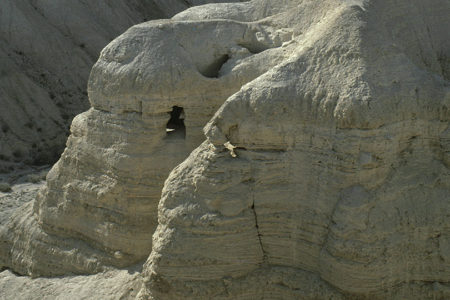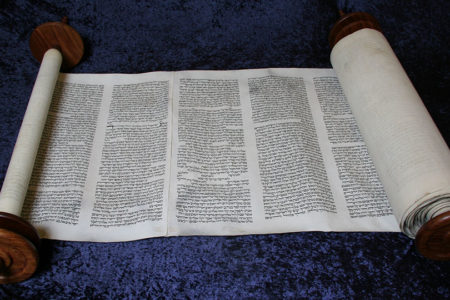God Is Moral Part Three
The previous article examined two types of sexual violations and perversions of God’s moral absolutes and His fixed order of moral law. Here we will examine five more such violations.
Bestiality. The American College Dictionary defines bestiality as “unnatural sexual relations with an animal; sodomy.”1
Through the Mosaic Law that God gave to Israel, He clearly revealed His attitude concerning human beings having sexual relations with animals. That Law stated the following: “Whoever lies with an animal shall surely be put to death” (Ex. 22:19). “Nor shall you mate with any animal, to defile yourself with it. Nor shall any woman stand before an animal to mate with it. It is perversion” (Lev. 18:23). “If a man mates with an animal, he shall surely be put to death, and you shall kill the animal. If a woman approaches any animal and mates with it, you shall kill the woman and the animal. They shall surely be put to death. Their blood is upon them” (Lev. 20:15–16). “Cursed is the one who lies with any kind of animal” (Dt. 27:21).
Incest. The American College Dictionary defines incest as “the crime of sexual intercourse between persons related by blood or marriage within the degrees in which marriage is prohibited.”2
Before God gave the Mosaic Law to Israel, Reuben, Jacob’s firstborn son, had sexual intercourse with Bilhah, his father’s concubine (Gen. 35:22). Years later, when Jacob was on his deathbed, he did not bless Reuben. Instead, he rebuked him for defiling his father’s bed (Gen. 49:4).
Donald J. Wiseman wrote the following concerning the Hebrew word for “defiling”:
The original use of the word may have been in reference to sexual relations, since it is used of Reuben’s defilement of his father’s line (Gen. 49:4) or of intercourse within the near kin relations forbidden by law. Such actions were considered fornication and prostitution. The word may therefore be used of any action which controverts God’s planned order.3
Through the Mosaic Law, God forbade an Israelite man from having a sexual relationship with any woman who was “near of kin to him” (Lev. 18:6). This included his mother; step-mother; half sisters; granddaughters; sisters by adoption; aunts; daughters-in-law; sisters-in-law; daughters and granddaughters of a woman whom he married; and sisters, while both were living (Lev. 18:7–18; 20:17, 19–21; Dt. 22:30). When the Law was in effect with Israel, God required the death penalty for everyone involved in the following violations: sexual intercourse of a man with his step-mother or daughter-in-law and the marriage of a man to a woman and her mother. The Law called such violations a perversion of what God had ordained and characterized them as “wickedness” (Lev. 20:11–12, 14). The Law forbade an Israelite from marrying his stepmother (Dt. 22:30) and cursed a man who had sexual inter-course with her (27:20).
Pedophilia. Webster’s New International Dictionary of the English Language defines pedophilia as “erotic desire of an adult for a child.”4 The term clearly includes sexual activity between an adult and child, including all forms of sexual abuse and the production and distribution of child pornography.
Those involved with any form of pedophilia would be wise to heed the following warning given by Jesus Christ:
Whoever causes one of these little ones who believe in Me to sin, it would be better for him if a millstone were hung around his neck, and he were drowned in the depth of the sea. Woe to the world because of offenses! For offenses must come, but woe to that man by whom the offense comes! Take heed that you do not despise one of these little ones, for I say to you that in heaven their angels always see the face of My Father who is in heaven (Mt. 18:6–7, 10).
Rape. Rape is the act of forcefully violating another person sexually against his or her will.
Before God gave the Mosaic Law to Israel, Jacob’s daughter, Dinah, was raped by a young Hivite prince. Jacob’s sons were so grieved and angry because their sister had been defiled that two of them killed her rapist, his father, and all the men of the Hivite city (Gen. 34).
While the Mosaic Law was in effect with Israel, God required that rape be treated as follows: If a man raped a betrothed young woman in a rural area where her cry for help could not be heard, he was to be executed (Dt. 22:25–27). If a man raped a young woman who was a virgin and not betrothed, he had to pay her father a betrothal purchase price and take the young woman as his wife for life. He was never permitted to divorce her because he had humbled her through rape (22:28–29).
During the time of the Judges, perverted men of the Benjamite city of Gibeah repeatedly raped the concubine of a Levite. The woman died from their abuse. In response to this lewd, outrageous deed, the other tribes of Israel sent men throughout the tribe of Benjamin, demanding they turn the rapists over to them for execution and thereby remove this evil from Israel. The Benjamites refused. As a result, war broke out between the Benjamites and the other tribes. Many on both sides lost their lives, and Gibeah and other Benjamite cities were destroyed (Jud. 19—20).
David’s firstborn son, Amnon, raped his half sister, Tamar, despite her earnest plea that he not do such a disgraceful thing. As a result, her brother, Absalom, hated Amnon and had him murdered (2 Sam. 13:1–29).
When the Babylonians conquered and destroyed Jerusalem in 586 B.C., they raped women in Jerusalem and other cities of Judah (Lam. 5:11).
The Israelites used the following descriptive terms for instances of rape: disgraceful (Gen. 34:7; 2 Sam. 13:12), wicked deed and wickedness (Jud. 20:3, 12), lewdness and outrage (v. 6), vileness (v. 10), and evil (v. 13). In addition, they emphasized that these rapes were committed “in Israel” (vv. 6, 10), declared that “no such thing should be done in Israel” (2 Sam. 13:12), and wanted to “remove the evil from Israel” (Jud. 20:13). All of these expressions indicate their conviction that God regarded rape as immoral and, therefore, contrary to what God had ordained for their nation.
Homosexuality. Historically, homosexuality has been defined in a broad sense as sexual activity or relations between persons of the same sex. In a narrower sense, the term has been used specifically of sexual relations between men. Another term, sodomy, has been used as a synonym for homosexual relations between men. The American College Dictionary defines sodomy as “unnatural sexual intercourse, esp. of one man with another or of a human being with an animal.”5
The term sodomy originated as a synonym for homosexual relations between men as a result of what men practiced in the ancient city of Sodom. The Lord told Abraham that the sin for which the cities of Sodom and Gomorrah were notorious was “very grave” (Gen. 18:20). Because the men of Sodom thought the angels whom the Lord sent to their city were mere men, they demanded them so they could sexually abuse them (19:4–5). Thus they revealed the nature of the very grave sin for which Sodom was noted. The angels stated that the Lord had sent them to destroy Sodom (v. 13). The Lord “rained brimstone and fire on Sodom and Gomorrah,” destroying those cities and their inhabitants through the angels (vv. 24–25).
Later, through the Mosaic Law that God gave to Israel, He forbade the men of that nation to “lie with a male as with a woman” and described sexual relations between men as “an abomination” (Lev. 18:22). Again God said,
If a man lies with a male as he lies with a woman, both of them have committed an abomination. They shall surely be put to death. Their blood shall be upon them (20:13).
Some men from the Israelite city of Gibeah demanded that a Levite man be turned over to them so they could force homosexual relations on him. They are described as “perverted men” (Jud. 19:22). The man responsible for the Levite’s safety said such action would be wicked, an outrage, and vile (vv. 23–24). Through their action, the men of Gibeah, like the men of Sodom, blatantly and unashamedly revealed their perverted passions and lusts.
Years later God described the rebellious actions of Jews who opposed the Lord through their speech and deeds during the time of the prophet Isaiah. He said, “They declare their sin as Sodom; they do not hide it. Woe to their soul! For they have brought evil upon themselves” (Isa. 3:9).
The apostle Paul addressed the ultimate cause of the breakdown of morality and order in ancient times, saying it was the rebellion of human beings against the sovereign God who created the universe. Such rebels “did not like to retain God in their knowledge” (Rom. 1:28). In other words, they wanted their world-life view of ultimate reality to be completely devoid of the existence of God. Their motivation was obvious. Acknowledging God’s existence would mean they were subject and answerable to Him for the conduct of their lives. They did not want those implications.
A modern expression of this rebellion is the following statement of a professor of Early Christianity at Gottingen University in Germany:
With the last of my strength I pushed God himself down into the mire and at last became free….So I prefer from now on to develop a purely human view of religion without having to legitimate myself by a higher authority which theologians call God.6
In order to delete God from their knowledge, the ancient rebels willfully suppressed the revelation of God’s existence and power that is displayed through the universe He created (vv. 18–20), and they claimed they were wise to do so (v. 22).
The next article will observe how this suppression of divine revelation prompted a moral breakdown that welcomed homosexuality.
ENDNOTES
- The American College Dictionary, s.v. “bestiality.”
- Ibid., s.v. “incest.”
- Donald J. Wiseman, ”halal,” Theological Wordbook of the Old Testament, Laird Harris, Gleason L. Archer Jr., and Bruce K. Waltke, eds. (Chicago: Moody Press, 1980), 1:289.
- Webster’s New International Dictionary of the English Language, 2nd ed., s.v. “pedophilia.”
- The American College Dictionary,v. “sodomy.”
- Gerd Ludemann, The Great Deception: And What Jesus Really Said and Did (Amherst: Prometheus Books, 1999), 8.







